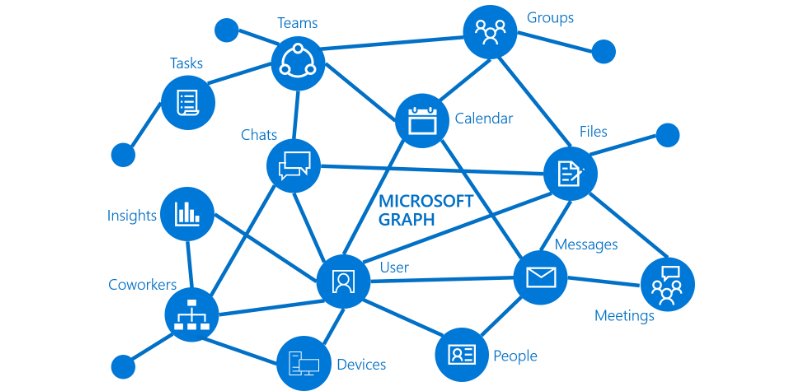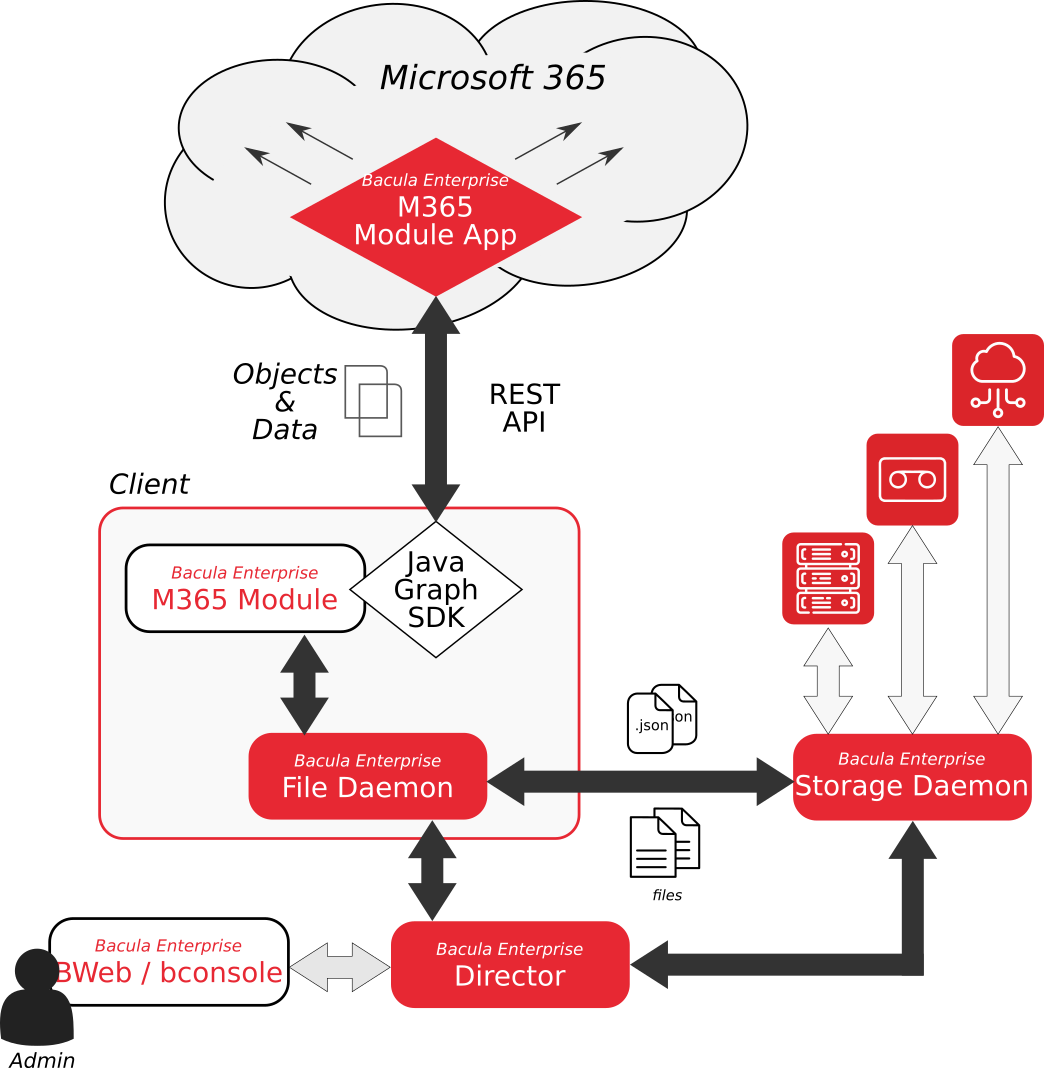Architecture
EnterpriseBacula Enterprise Only
This solution is only available for Bacula Enterprise. For subscription inquiries, please reach out to sales@baculasystems.com.
Bacula Enterprise Microsoft 365 Plugin is using the Microsoft Graph API to perform almost all of its operations. Therefore, the plugin is working at the maximum granularity that the service provides.

Microsoft Graph
All the information is obtained using secure and encrypted HTTPS queries to Microsoft 365 from the File Daemon where the plugin is installed. All the requests are performed over the following endpoints:
Graph API to manage all the services (except Sharepoint Online): https://graph.microsoft.com/
Login endpoint: https://login.microsoftonline.com/
Sharepoint Online service endpoint: https://{tenantname}.sharepoint.com/
Exchange Onlyne service endpoint: https://outlook.office365.com/
To get more information about Graph API, visit: https://learn.microsoft.com/en-us/graph/overview
The plugin will contact an Azure registered app named bacula-m365-plugin and will use it as a bridge to download the required data or objects during the time of a backup and send them to the Storage Daemon. Conversely, the plugin will receive them from an SD and perform uploads as needed during a restore.
The implementation is done through a Java Daemon, therefore Java is a requirement in the FD host. For more information about the bacula-m365-plugin, please, consult Authorization section.
Below is a simplified vision of the architecture of this plugin inside a generic Bacula Enterprise deployment:

M365 Plugin Architecture
Listed below is the information that can be protected using this plugin:
Email
Common MailFolders (Inbox, Deleted Items, Drafts..)
User MailFolders & SubFolders
Messages & EventMessages
Attachments (ItemAttachments, FileAttachments and ReferenceAttachments)
Mailbox settings
Folder Rules
OneDrive
Onedrive for Business of Users, for each drive unit
Folders
Files
File Versions
Group libraries, for each drive unit
Folders
Files
File Versions
Sharepoint site libraries, for each drive unit
Folders
Files
File Versions
Shared permissions (direct access, share links, expiration times..)
SharedWithMe Objects
Sharepoint
Pnp Site template
Site metadata
Lists metadata
ListItems metadata
WebPages metadata
Site Object
Site sharing permissions
Lists Objects
ListItem Objects
Contacts/People
Contact object
Name of Groups of contacts
Organizational contact object
Tasks
User Todo lists
User Todo tasks
Calendars
Calendar objects
Calendar group objects
Calendar permissions
Events objects
Attachments (ItemAttachments, FileAttachments and ReferenceAttachments)
MIME objects where possible
Notebooks
Notebook objects
Section objects
SectionGroup objects
Pages
Page contents (Html formatted) - Page resources
Page image files
Page object files (any other file apart from images)
Teams
Team objects
Team settings
Team members and associated roles
Team installed apps
Channel objects
Channel tabs
Channel chat messages
Chat messsages hosted contents
Chat
Chat objects
Chat installed apps
Chat tabs
Channel chat messages
Chat messages hosted contents
Activity
Varied service reports in CSV format
All the information of each object is stored in JSON format (except for Pnp site template, which is stored in XML), preserving all their original values. When the plugin works with objects containing additional data (MIME files for messages, data for attachments and files of OneDrive, etc), that data is also backed up.
See also
Previous articles:
Next articles:
Go back to: Microsoft 365 (M365) Plugin.